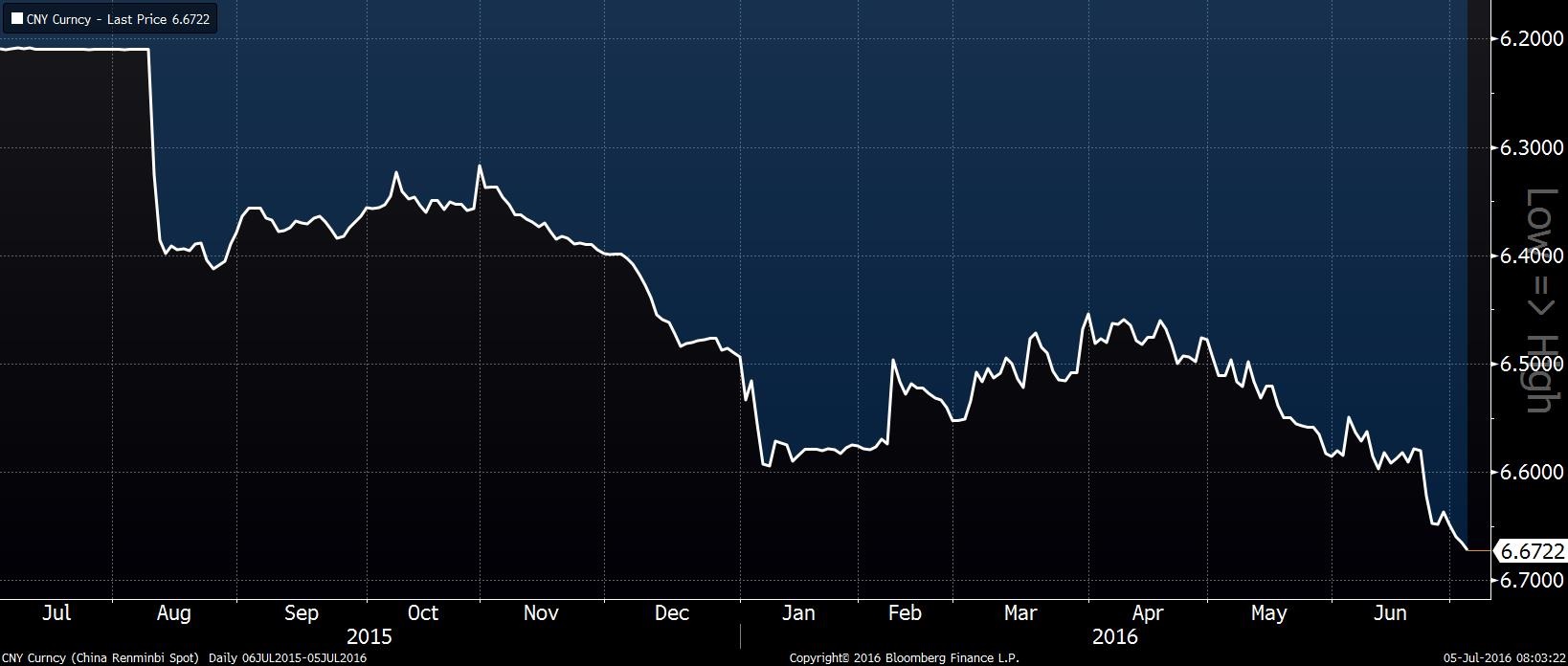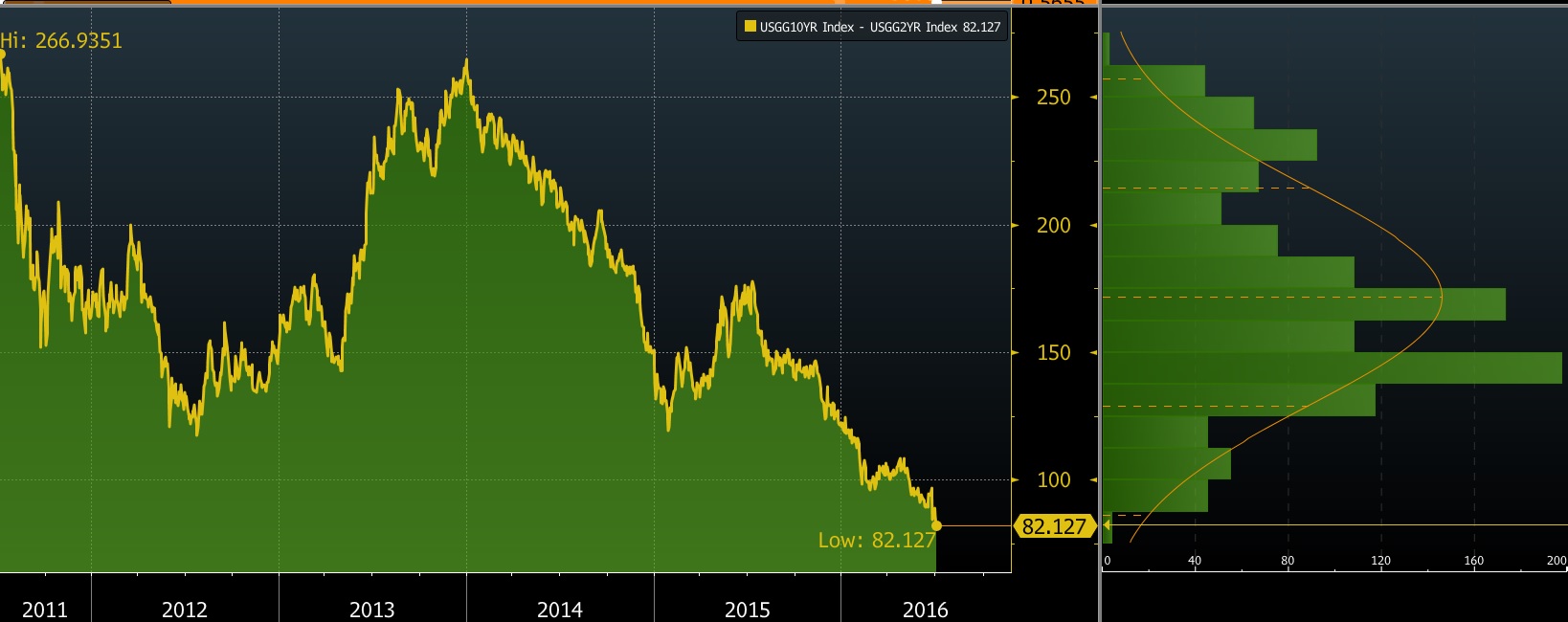Daily Comment (July 5, 2016)
by Bill O’Grady and Kaisa Stucke
[Posted: 9:30 AM EDT] After an impressive recovery in equities last week, markets are weakening to start this week. There are a number of factors weighing on sentiment. Here are the key ones:
The Italian banking mess: Today’s lead headline in the FT discusses how Monte dei Paschi (BMPS: IM, €0.30. -0.03), the world’s oldest bank, may need a capital injection from the Italian government. The ECB has told the bank it needs to shed €10 bn of bad loans to meet regulatory requirements. Shares of the bank tumbled 13% at one point overnight and other Italian bank shares are down as well. There is growing concern that the Renzi government (which is facing an October referendum on government restructuring) may bypass EU banking rules and use public funds to bail out the banks. EU rules severely restrict government’s ability to recapitalize banks; instead, the EU wants bank creditors to bear the risk of a bank failure. The primary creditors are bondholders, and bank bonds in Italy are mostly held by households as a form of saving. If Italy follows EU rules, it could trigger conditions similar to bank runs. Although Brexit is the focus of media concern, Italy’s banks are probably a much greater risk to European stability.
U.K. financial troubles: Standard Life Investments announced it is suspending trading in a £2.9 bn commercial property fund which was facing massive redemption requests. The BOE announced that it is easing bank capital requirements to support liquidity, but Governor Carney admitted that the problem with lending would not be from the lack of loanable funds but from demand for those funds. We would not be surprised to see rate cuts in the near term. The GBP plunged overnight, hitting $1.31 briefly.
China concerns: China is holding military exercises in disputed areas in front of an international tribunal’s decision that is expected to challenge China’s claims on the region. China has already indicated it will ignore any ruling that it disagrees with. Meanwhile, the PBOC is using the Brexit turmoil to allow the CNY to steadily depreciate.
This weakening of the CNY isn’t catching much attention because the PBOC has managed to keep the offshore exchange rate (the CNH) mostly in line with the CNY. When the two rates diverge (mostly due to the CNH weakening faster), it suggests capital flight and raises fears about global financial stability. Still, the weakening of the CNY increases the likelihood that China is trying to export its way out of its growth issues.
A hung Australian election: Elections in Australia have not given a clear-cut result quite yet. The ruling party is about five seats short of gaining unilateral control of the government. It is quite possible we may not have a government in Australia for at least a week. If a coalition government is necessary, it may take up to a month. Under normal circumstances, this outcome would not be so bad but, given the current global political upheaval, another Western government in turmoil simply adds to global uncertainty.
The continued fall in long-duration Treasuries: The 10-year T-note yield fell below 1.40% this morning as all the aforementioned issues weigh on investor confidence and trigger further flight to safety demand. We are seeing similar strength in gold prices. The major worry from falling Treasury yields is that we are seeing further flattening of the yield curve.
The good news is that the curve hasn’t inverted; an inverted curve is probably the most reliable signal of recession available. The bad news is that the yield curve is rapidly flattening, suggesting sluggish economic growth.
Overall, fear has returned to global financial markets. The trading pattern lately has been that opening equity weakness from overseas issues has tended to dissipate as the trading day wears on and often a rally develops into the close. We will be watching to see if that pattern resumes today.




